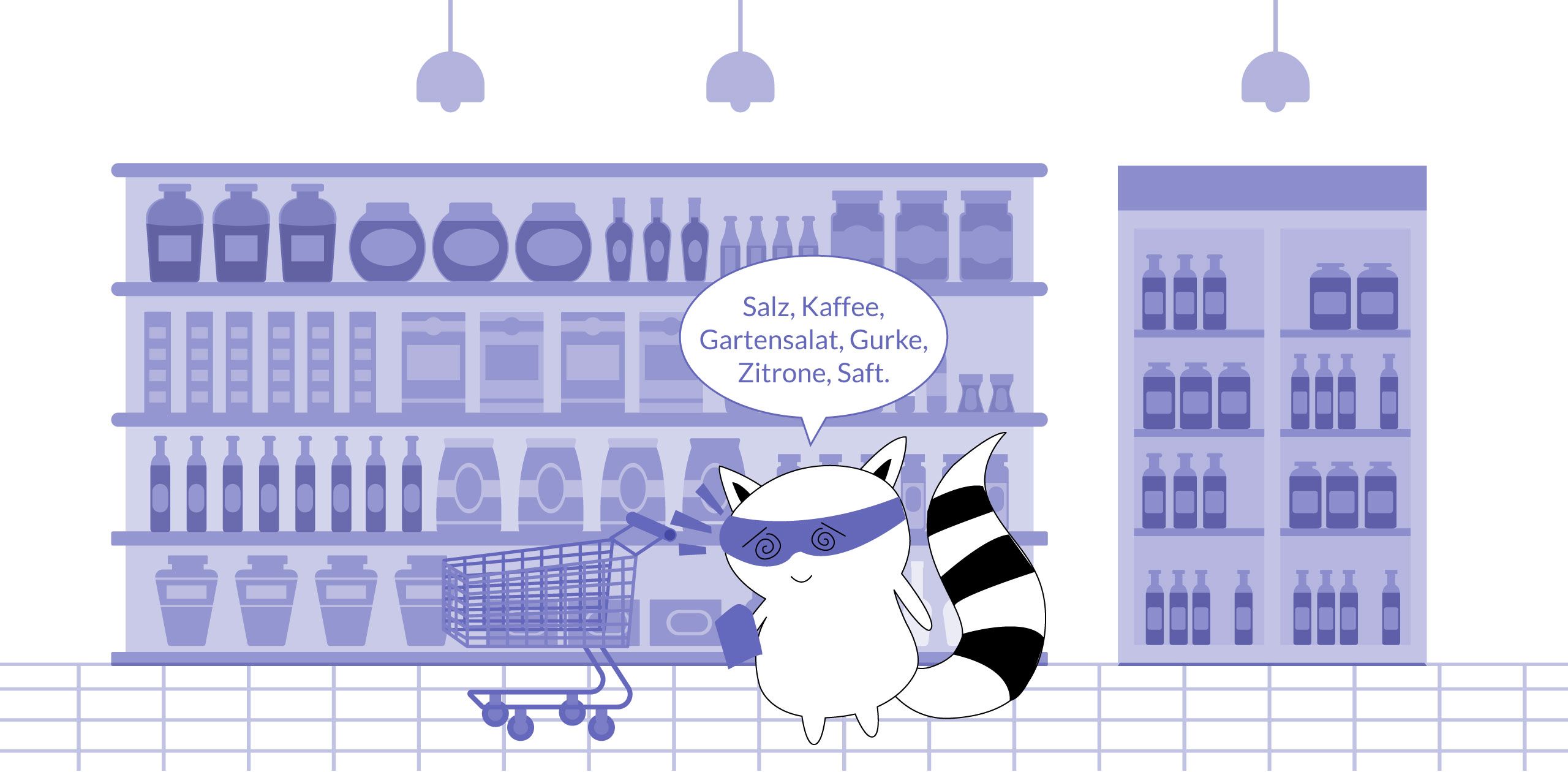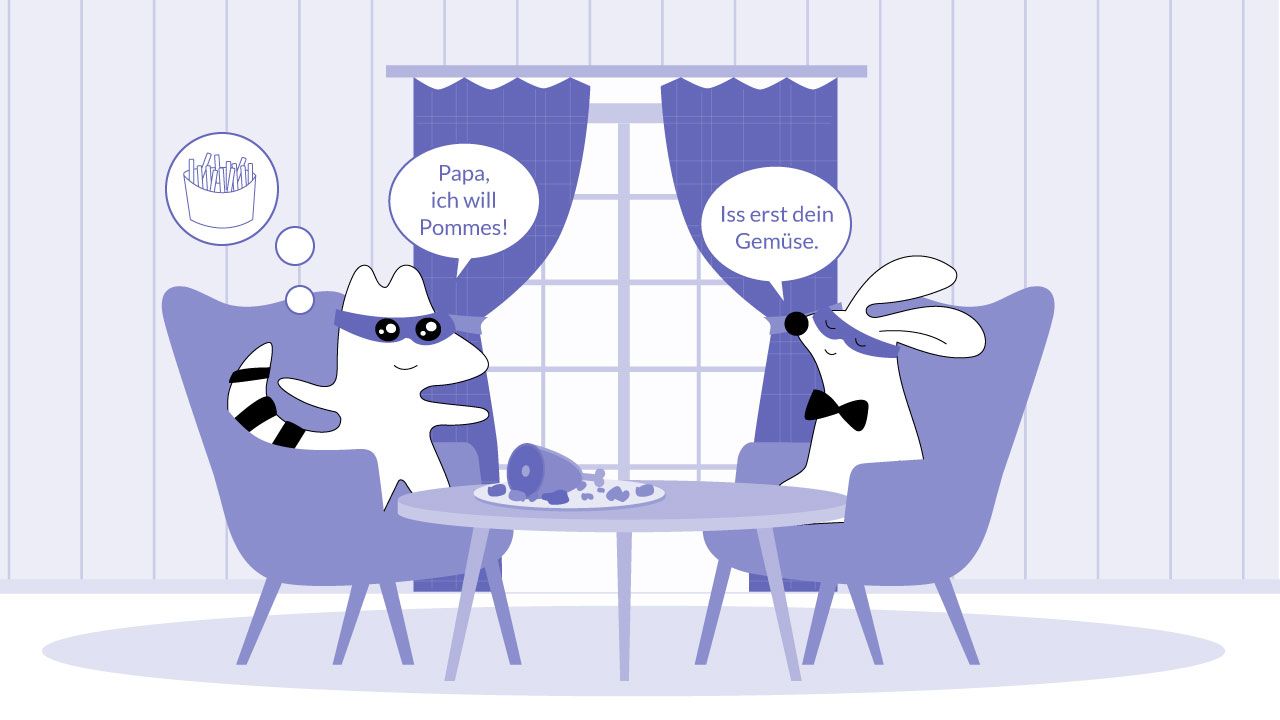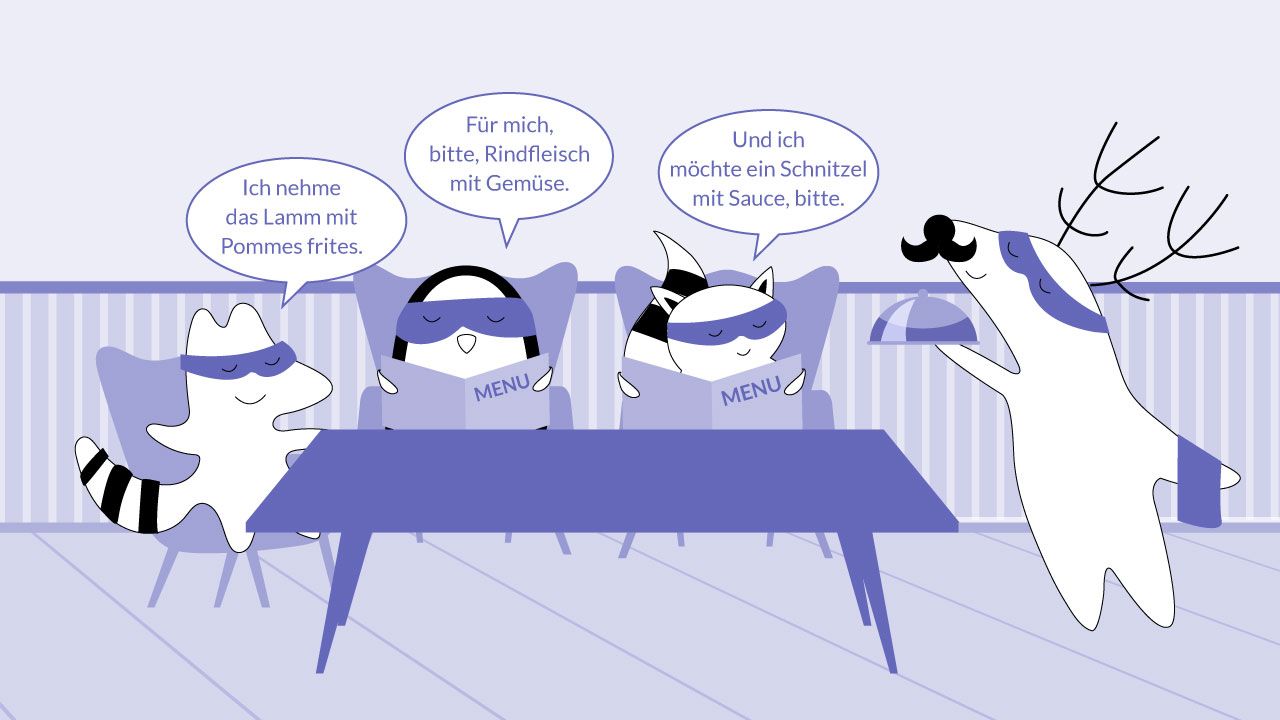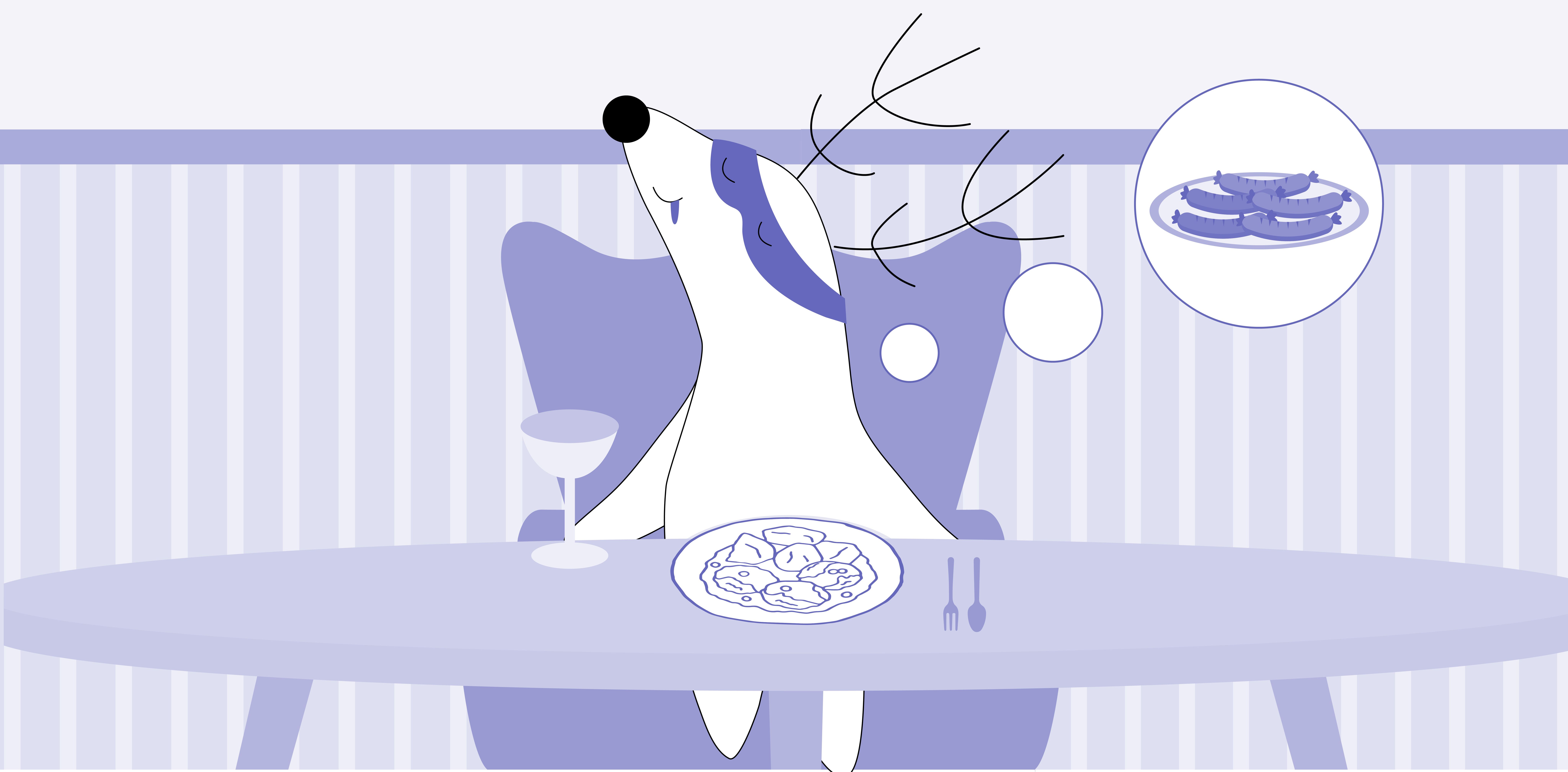
If you're planning a trip to Germany or are learning the language, one of the first things you'll want to know is how to order food. German has many different words for food that can be tricky to learn for beginners. However, with a little practice, you'll be able to order all your favorite German dishes with ease.
In this article, we'll cover the most common German food vocabulary, so that you can start using it right away. Read on, and make sure whether you’re eating out in a German restaurant, going shopping in Berlin, or cooking something based on German recipes, you know exactly what to say.
Learn German with Langster
German Food Basics
Before ordering complex menu items in restaurants or cooking time-consuming meals, it’s important to get familiar with the basics. Let’s take a look at the list of the most common food words you will come across in the German language.
Here they are:
Things Found in the Pantry
German
English
das Salz
salt
der Zucker
sugar
die Marmelade
jam
der Reis
rice
das Brot
bread
das Nudeln
noodles
das Mehl
flour
der Tee
tea
der Kaffee
coffee
der Pfeffer
pepper
der Essig
vinegar
das Öl
oil
der Senf
mustard
der Honig
honey
Common Foods
German
English
das Obst
fruits
das Gemüse
vegetables
das Fleisch
meat
das Fisch
fish
der Käse
cheese
das Ei
egg
And a little bit more detail:
German
English
die Pommes (frites)
fries
die Pizza
pizza
die Wurst
sausage
das Eis
ice cream
der Kuchen
cake
der Knödel
dumplings

Meals in German
German
English
das Frühstück
breakfast
das Mittagessen
lunch
das Abendessen
dinner
der Imbiss
snack
die Vorspeise
appetizer
das Hauptgericht
main course
der Salat
salad
die Suppe
soup
die Soße
sauce
das Dessert
dessert
German Dishes
German
English
das Besteck
silverware
der Becher
mug
das Glas
glass
die Tasse
cup
die Gabel
fork
der Löffel
spoon
der Messer
knife
der Teller
plate
German Cooking Verbs
German
English
essen
to eat
trinken
to drink
kochen
to cook
backen
to bake
Hunger haben
to be hungry
Durst haben
to be thirsty
den Tisch decken
to set the table
satt sein
to be full
bestellen
to order
zum hier Essen
to eat here
zum Mitnehmen
to take away
Are you ready for more details now? Let’s learn more about different German foods – for your convenience, we’ve divided them into categories.
Vegetables in German
German
English
die Ackerbohne
broad bean
die Artischocke
artichoke
die Aubergine; die eierfrucht
eggplant
die Avocado
avocado
der Blumenkohl
cauliflower
der Broccoli
broccoli
die grüne Bohne
green bean
die Erbse
pea
der Gartenkürbis; die Zucchini
zucchini; courgette
der Gartensalat
lettuce
der Garten-Rettich
radish
die Gurke
cucumber
die Ingwerwurzel
ginger root
die Karotte
carrot
die Kartoffel
potato
der Knoblauch
garlic
der Kürbis
pumpkin
der Lauch
leek
der Mais
corn
der Mangold
chard
der Paprika
bell pepper
die Rote Bete
beetroot
der Rotkohl
red cabbage
die Rübe
turnip
der Spargel
asparagus
der echte Sellerie
celery
der echte Spinat; der Gemüsespinat; der Gartenspinat
spinach
die Süßkartoffel
sweet potato
die Tomate
tomato
die Zwiebel
onion
Fruits in German
German
English
die Ananas
pineapple
der Apfel
apple
die Aprikose
apricot
die Banane
banana
die Beere
berry
die Birne
pear
die Brombeere
blackberry
die Blaubeere; die Heidelbeere
blueberry
die Dattel
date
die Erdbeere
strawberry
die Feige
fig
die Grapefruit
grapefruit
die Himbeere
raspberry
die Johannisbeere
currant
die Kirsche
cherry
die Kiwi
kiwi
die Kokosnuss
coconut
die Limone
lime
die Mandarine
mandarin
die Melone
melon
die Orange
orange
der Pfirsich
peach
die Pflaume
plum
die Ulme
elm
die Traube
grapes
die Wassermelone
watermelon
die Zitrone
lemon
Meats in German
German
English
das Fleisch
meat
das Rindfleisch
beef
das Schweinefleisch
pork
das Kalbfleisch
veal
das Geflügel
poultry
das Hähnchen
chicken
das Lamm
lamb
der Speck
bacon
das Kotelett
cutlets; chops
das Schnitzel
Austrian-style fried slice of meat

Dairy in German
German
English
die Butter
butter
der Frischkäse
cream cheese
die Hüttenkäse
cottage cheese
der Joghurt
yoghurt
die Milch
milk
die Sahne
cream
der Sauerrahm
sour cream
Deserts in German
German
English
die Schokolade
chocolate
das Bonbon
candy
die Nuss
nut
der Keks
cookie
die Praline
chocolate with filling
die Torte
tart
der Süßstoff
sweetener
Drinks in German
German
English
die Milch
milk
das Wasser
water
der Saft
juice
der Wein
wine
das Kaltes Getränk
cold Drink
das Bier
beer
der Sirup
syrup
das Destilliertes Getränk
distilled Beverage
Ordering Food in German
To order food in a German restaurant, you have two types of phrases you can use: either “Ich hätte gerne…” which lightly translates to “I would like” or a number of the dishes combined with the word “mal” (times) plus “bitte” (please) - just like in French, for example.
Ordering food:
German
English
Ich hätte gerne…
I would like to have…
Einmal Schnitzel bitte.
One schnitzel please.
Einmal Flammkuchen und dreimal Pommes bitte.
One flammkuchen and three portions of french fries please.
Reaction to the meal:
German
English
Lecker!
It’s tasty!
Sehr gut.
Very good.
Ich finde es scharf.
It’s spicy.
Ich finde es ein bisschen fade.
It’s a bit bland.
Es ist köstlich.
It’s delicious.
Es ist kalt.
It’s cold.
Es ist heiß.
It’s hot.
Sehr, sehr saftig.
Very, very juicy.
To order more:
German
English
Noch ein Bier bitte.
Another beer, please.
Kann ich bitte noch ein Bier haben?
Can I have another beer, please?
Noch zwei bitte!
Another two, please!
Paying:
German
English
Die Rechnung bitte.
The bill, please.
Wir möchten zahlen.
We’d like to pay.
Können wir bitte zahlen?
Can we pay, please?
German Food Culture

German food culture is based on politeness and clarity. When eating out or eating together with someone, remember about being well-mannered and straightforward. Here are a few key tips to keep in mind.
For starters, it’s customary to say “Danke”(thank you) after someone has served you food. It’s also polite to say “Guten Appetit!” (enjoy your meal!) before beginning to eat.
When it comes to eating the food, you should use your fork and knife to cut food into small pieces before putting it in your mouth. Remember to keep your mouth shut while you chew, and don’t speak with your mouth full. Keep your elbows off the table and don’t start eating until everyone is served.
In general, Germans are not very keen on small talk and would rather avoid it if they can. So, when you sit down to have a meal with Germans, don’t be surprised if they immediately start eating without engaging in a lot of chit-chat first.
And last but not least, Germans are known for their love of beer. In fact, Germany has one of the highest per capita consumption of beer in the world! So, if you find yourself at a German table, it’s quite likely that someone will offer you a pint. And if you’re looking to fit in, make sure to clink glasses before taking a sip. Prost!
Eat Up!

Learning German food words can be a fun way to get started with learning the German language. Not only do you learn how to order your favorite dishes at a German restaurant, but you also learn about some of the polite customs that are important in German culture.
But even if you’re an advanced German learner, don’t skip this part. Remember: learning general vocabulary is an essential part of becoming fluent in any language. The more words you know, the easier it will be to understand and communicate with others in German.
So, whether you’re just starting out or you’ve been studying German for a while, make sure to add these food words and other essential vocabulary words to your list. And if you want to learn more German vocabulary and grammar, check other posts on our blog or download the Langster app – and have fun learning German.









